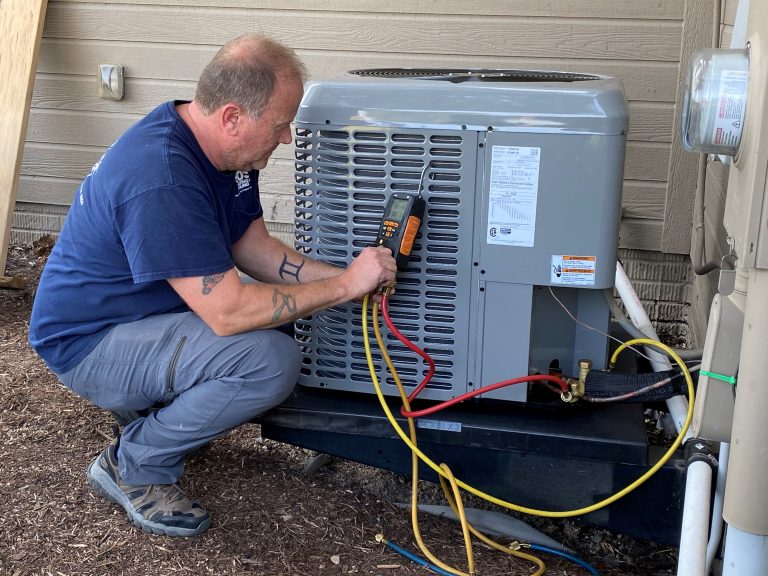Air Conditioning Repair Duncanville TX can be a daunting task, especially if you’re not familiar with the inner workings of HVAC systems. However, with a systematic approach and some basic knowledge, you can often identify and resolve common issues on your own.

In this comprehensive guide, we’ll walk you through the steps to troubleshoot your malfunctioning air conditioner, covering everything from checking the thermostat to inspecting the condenser coils. By following these steps, you can potentially save time and money on costly repairs or replacements.
1. Check the Thermostat
The first step in troubleshooting your air conditioner is to check the thermostat. Ensure that it is set to the cooling mode and that the temperature is set lower than the current room temperature. Sometimes, a simple adjustment of the thermostat settings can solve the problem of an AC not cooling properly.
2. Inspect Air Filters
Clogged or dirty air filters can significantly reduce airflow, leading to decreased cooling efficiency and potential system damage. Check the air filters regularly and replace them if they are dirty or clogged. Clean air filters not only improve indoor air quality but also help your air conditioner operate more efficiently.
3. Examine the Condenser Unit
The outdoor condenser unit plays a crucial role in the cooling process by releasing heat absorbed from indoors. Inspect the condenser unit for any visible damage or obstructions, such as dirt, leaves, or debris. Clean the area around the unit and ensure that there is ample space for proper airflow.
4. Check the Evaporator Coil
The evaporator coil is responsible for absorbing heat from indoor air. Over time, the coil can become dirty or frozen, hindering its ability to cool the air effectively. Check the evaporator coil for any signs of frost or ice buildup. If frozen, turn off the air conditioner and allow the ice to melt before restarting.
5. Look for Refrigerant Leaks
Low refrigerant levels can prevent your air conditioner from cooling properly and may indicate a leak in the system. Inspect the refrigerant lines for any signs of leaks, such as oily residue or hissing sounds. If you suspect a refrigerant leak, contact a professional HVAC technician to diagnose and repair the issue.
6. Inspect the Electrical Components
Faulty electrical components, such as capacitors or relays, can cause your air conditioner to malfunction. Check the electrical connections and components for any signs of damage or wear. If you notice any issues, such as burnt wires or loose connections, contact a qualified electrician or HVAC technician for repairs.
7. Clean the Condenser Coils
Dirty condenser coils can impede heat transfer, causing your air conditioner to work harder and consume more energy. Use a soft brush or vacuum cleaner to remove dirt, debris, and other contaminants from the condenser coils. Regular cleaning can help improve the efficiency and longevity of your air conditioning system.
8. Test the Capacitor
The capacitor is a critical component that helps start the compressor and fan motor. A faulty capacitor can prevent your air conditioner from running properly or cause it to stop working altogether. Use a multimeter to test the capacitor for continuity and replace it if necessary.
9. Examine the Fan Motor
The fan motor is responsible for circulating air throughout your home. If the fan motor is not functioning properly, it can result in poor airflow and reduced cooling performance. Inspect the fan motor for any signs of damage or wear, such as worn bearings or burnt wires. Lubricate the bearings if necessary or replace the fan motor if it is defective.
10. Inspect Ductwork
Leaky or poorly insulated ductwork can lead to energy loss and reduced cooling efficiency. Inspect the ductwork for any signs of leaks, holes, or disconnected joints. Seal any leaks with duct tape or mastic sealant to improve airflow and energy efficiency.
By following these troubleshooting steps, you can often identify and resolve common issues with your malfunctioning Air Conditioning Repair Duncanville TX. However, if you’re unable to diagnose or fix the problem on your own, don’t hesitate to contact a professional HVAC technician for assistance. They have the knowledge, experience, and tools to diagnose and repair complex air conditioning problems, ensuring your home stays cool and comfortable during the hot summer months.
Duncan’s AC & Heating Repairs
1234 Highland Dr, Duncanville, TX 75137, United States
1-469-457-2437

